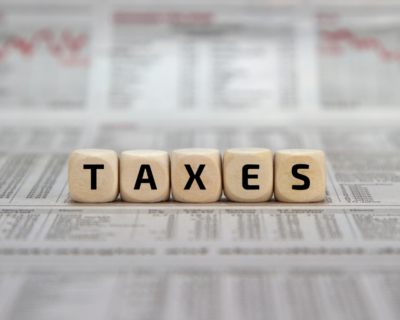Vote Yes on Saturday to Prevent New Taxes
The single proposed constitutional amendment on Saturday’s ballot would prohibit the state and local governments from imposing a tax or fee on real estate transfers.
For a comprehensive description of the proposed amendment, we direct you to a report from the Public Affairs Research Council of Louisiana (PAR). PAR does not take a position, but their report describes the amendment, places the issue in context and summarizes the arguments for and against. It is well worth a few minutes of your time.
The central issue is whether it makes sense to amend the constitution to prohibit the state and local governments from accessing revenue from real estate transfer taxes.
Real estate industry groups are actively supporting the amendment. They argue that adding taxes or fees to the purchase and sale of land will act as a deterrent to these transactions. Government-imposed costs would discourage an important type of economic activity at a time when the real estate market is already in the doldrums. This is a compelling argument and it goes largely unchallenged by opponents of the amendment.
Instead, opponents claim that it would be a mistake to deny access to potential revenue streams at a time when the state and local governments are struggling with budget shortfalls. The Louisiana Budget Project opposes the amendment on these grounds. Similarly, the Council for a Better Louisiana opposes the amendment, though it focuses more on the advisability of amending the state constitution.
We believe that voters should support this amendment and vote Yes on Saturday. While there is no doubt that policymakers have been challenged by recent budget shortfalls, most taxpayers face challenges of their own. These taxpayers must live within their means and we believe that policymakers should do the same.
One underappreciated fact about budget deficits is that they force policymakers to address problems that are otherwise avoided. In times of surplus, it is easy to throw money at problems, avoid the tough choices and kick the can down the road. Policymakers are human and most humans are understandably inclined to prefer the easy way out.
But the tendency to avoid making tough decisions, left unchecked, leads to disaster. The requirement that our state balance its budget each year puts a check on this tendency, and balancing the budget when revenues are down is a healthy exercise that taxpayers should welcome even if policymakers do not. The substantive reforms that are needed in so many areas simply will not take place if policymakers know that there is always a new source of revenue around the corner.
Opponents of the amendment claim that governments need flexibility to deal with the challenges facing our state. We agree. But governments can demonstrate flexibility by finding creative ways to deliver better services at a lower cost, rather than finding new ways to separate taxpayers from their money. We encourage you to vote Yes on Constitutional Amendment 1 on Saturday. It will protect taxpayers, encourage economic activity and increase the likelihood of the meaningful reform in our state.




